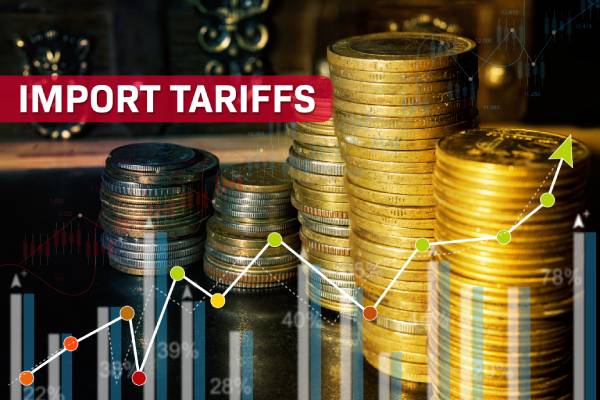
The U.S. has imposed new tariffs on imports from Mexico, Canada, and China, sparking concerns about rising costs, supply chain disruptions, and potential retaliation from trade partners. Here’s what you need to know:
The New Tariffs
- A 25% tariff has been placed on imports from Mexico and Canada.
- A 10% tariff applies to Canadian energy products.
- A 10% tariff targets goods from China.
- The tariffs take effect on February 4, 2025.
Key Supply Chain Implications
1. Increased Costs for Manufacturers and Retailers
Many U.S. companies rely on materials, parts, and finished goods from Mexico, Canada, and China. Higher tariffs mean increased costs for businesses sourcing from these countries, which could be passed on to consumers.
2. Potential Disruptions in Automotive and Energy Sectors
3. Supply Chain Diversification Accelerates
Companies will likely accelerate efforts to diversify suppliers and reduce reliance on tariffed imports. This could lead to:
- Increased sourcing from Vietnam, India, and Southeast Asia.
- A push for more nearshoring and reshoring of production to the U.S. or Latin America.
4. Logistics and Transportation Challenges
- Cross-border trade with Mexico and Canada could slow due to customs bottlenecks.
- Shippers may reconfigure supply routes, impacting trucking, rail, and port operations.
- Expect higher freight costs as businesses adjust sourcing strategies.
5. Possible Retaliatory Tariffs from Canada, Mexico, and China
- Canada has already announced 25% retaliatory tariffs on $155 billion worth of U.S. goods, including lumber and plastics.
- Mexico is preparing countermeasures, likely targeting agriculture and industrial exports.
- China has vowed to take “corresponding countermeasures,” which could affect U.S. manufacturers reliant on Chinese components.
What They’re Saying
United States
- U.S. Chamber of Commerce: “These tariffs will put undue pressure on American businesses and consumers, leading to higher prices and potential job losses.”
- National Association of Manufacturers: “Manufacturers need certainty, not policy shifts that disrupt supply chains and raise costs.”
Canada
- Prime Minister Justin Trudeau: “Canada will not stand by while unfair tariffs impact our workers and industries. Our response will be firm and measured.”
- Canadian Manufacturers & Exporters Association: “This is a blow to North American trade stability and will force many companies to rethink operations.”
Mexico
- Mexican Secretary of Economy: “These tariffs undermine the spirit of USMCA and threaten economic ties that benefit all three nations.”
- Confederation of Industrial Chambers of Mexico (CONCAMIN): “We will explore legal and trade countermeasures to protect our industries.”
China
- Ministry of Commerce of China: “The U.S. must correct its actions immediately to avoid further escalation of trade tensions.”
- Chinese Chamber of International Commerce: “Tariff retaliation will be necessary to safeguard our economic interests.”
What’s Next?
- Businesses must reassess supply chain strategies to mitigate tariff impacts.
- The risk of an escalating trade war could create uncertainty in global markets.
- Supply chain professionals should monitor policy changes and explore alternative sourcing options.
Bottom Line
These tariffs will likely increase costs, disrupt trade flows, and accelerate supply chain shifts. In the coming months, companies need to prepare for new sourcing strategies, potential retaliatory actions, and higher transportation expenses.